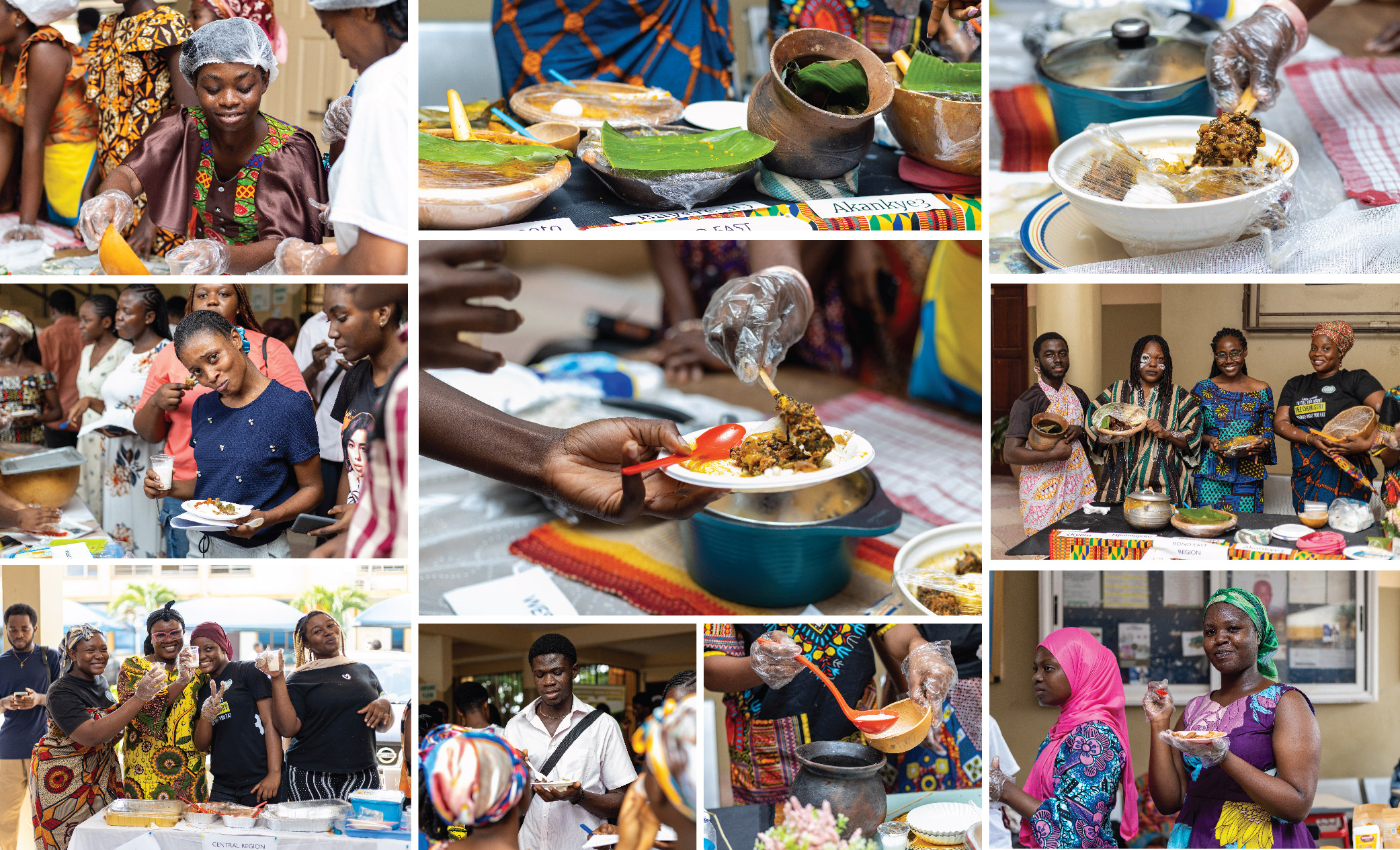Students from the Department of Food Science and Technology have staged a public showcase of rare and vanishing Ghanaian dishes, following months of research into the country’s regional culinary traditions.
As part of a semester-long “Traditional Food and Nutrition” course, students were assigned regions they had never visited.
Over months, they researched local customs, indigenous cooking techniques and the science behind the recipes, before recreating the meals, some with modern twists, in a public showcase.
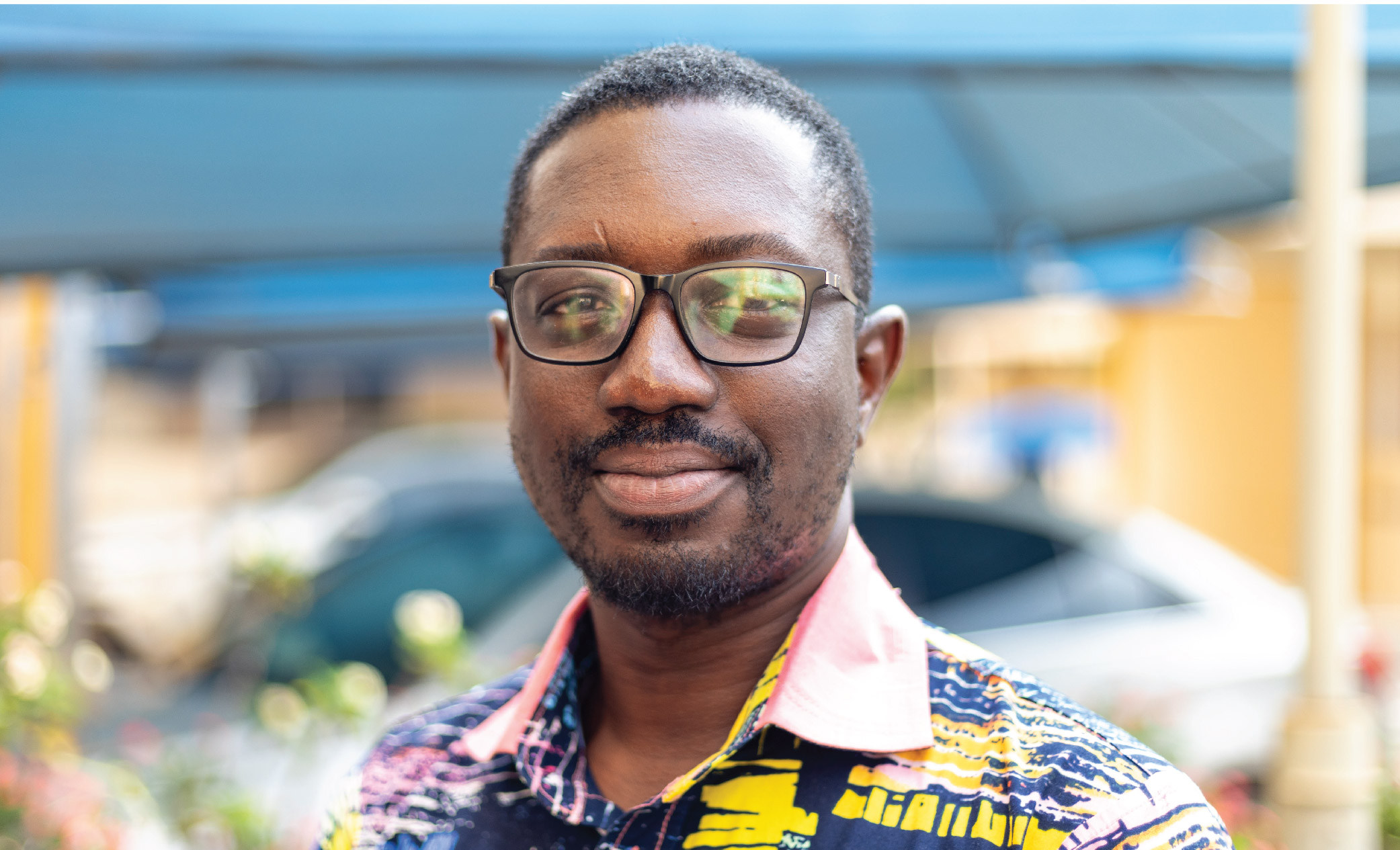
“We encourage them to work on foods that are uncommon, sometimes even on the brink of extinction, and find modern ways to bring them back,” said Dr. Nana Baah Peprah-Ameyaw, the course facilitator. “Ultimately, it’s a fun class that celebrates the variety of tradition in Ghana.”
On display were dishes such as piwa from the Central Region, made from coarsely milled corn and served with gizzard and tomato sauce, alongside coconut milk and sweets prepared from leftover coconut chaff.
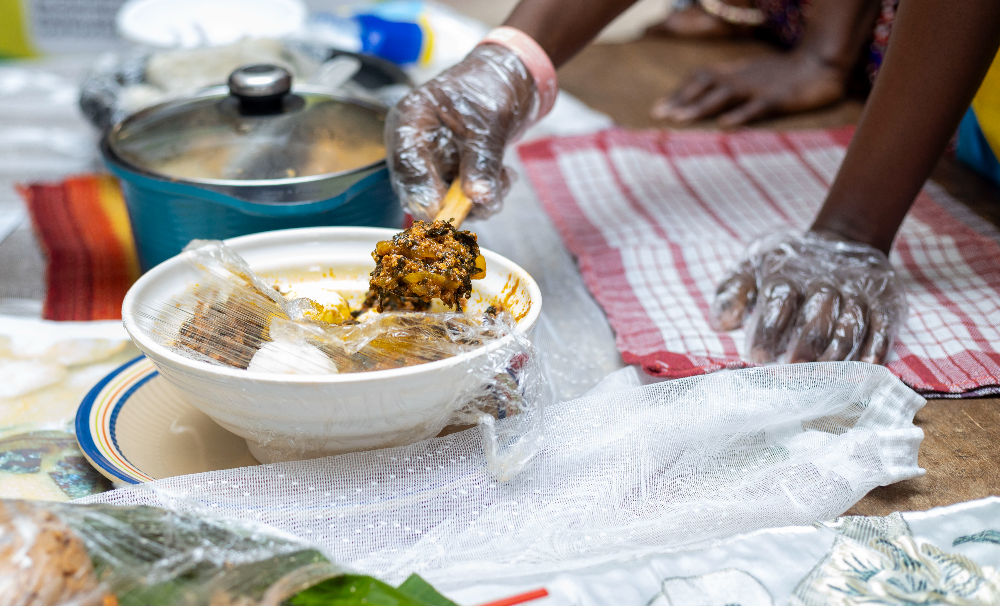
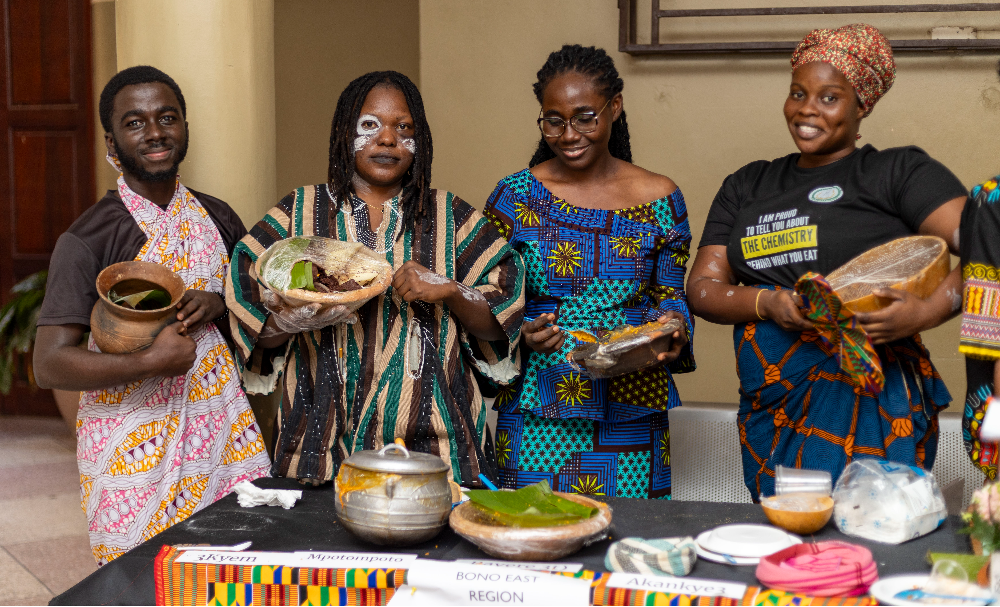
From the Bono East Region came ekyim and akankyi3, mpomtompomto while the Ashanti Region was represented by nuhu, a royal festival dish of cocoyam, palm oil, smoked fish and vegetables, traditionally cooked in plantain leaves.
“For us, it’s about portraying our culture, history and rich background through food,” said student Agyeman Ama Boatemaa.
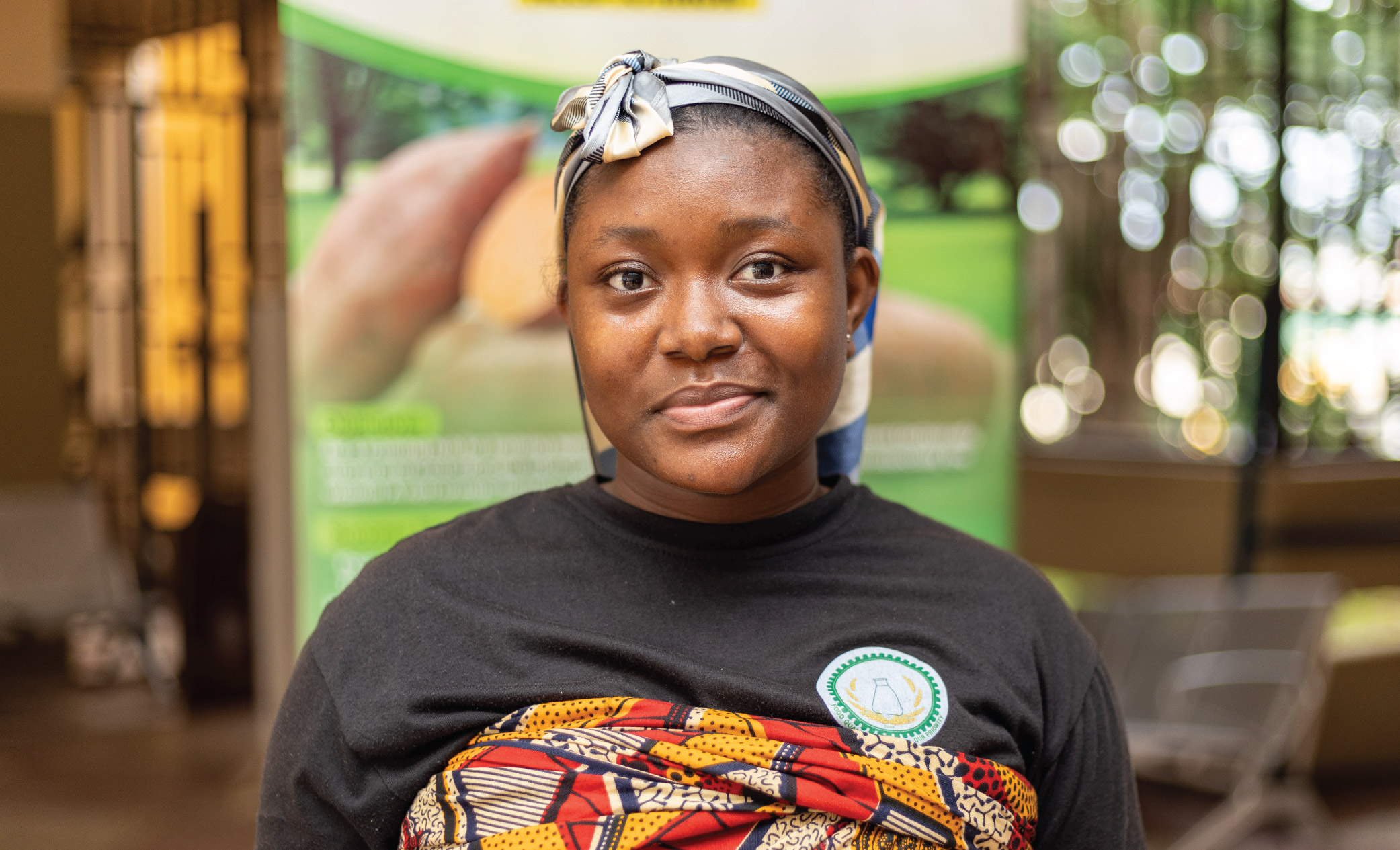
Another participant, Bubune Nanawortor, said the challenge was not just to cook but to innovate while respecting tradition.
“We decided to add a twist to piwa by pairing it with sauces and using coconut in new ways. It’s our way of promoting food security and reducing waste,” she said.
Rita Asare, who prepared nuhu, said the meal’s nutritional value and cultural significance were as important as its taste.
“It promotes unity and togetherness. Many people don’t even know it exists anymore,” she said.
The event drew students, faculty and visitors across the university, underscoring what Dr. Peprah-Ameyaw calls “a living laboratory”, one where academic research meets culinary heritage.
| Story: Edith Asravor (URO) Photos: Michael Kwawu (URO) |








